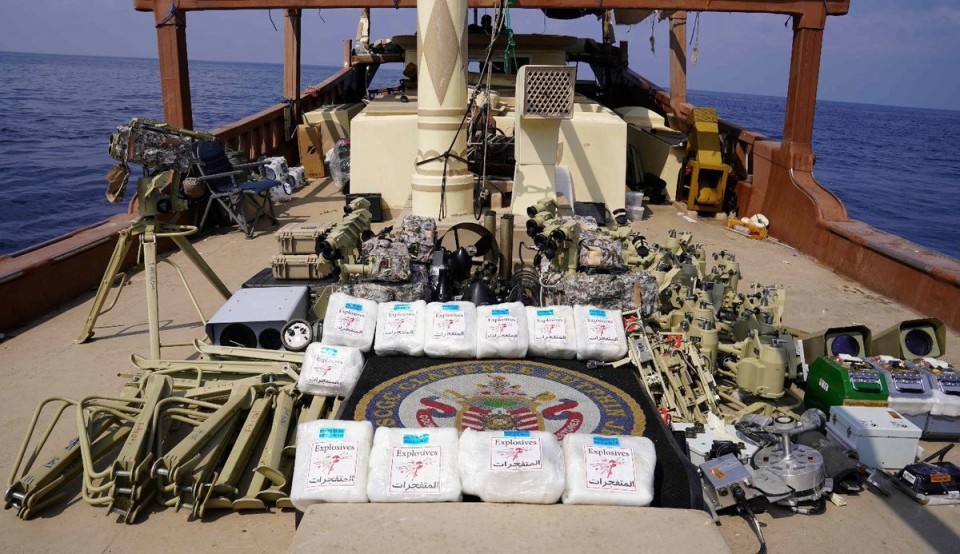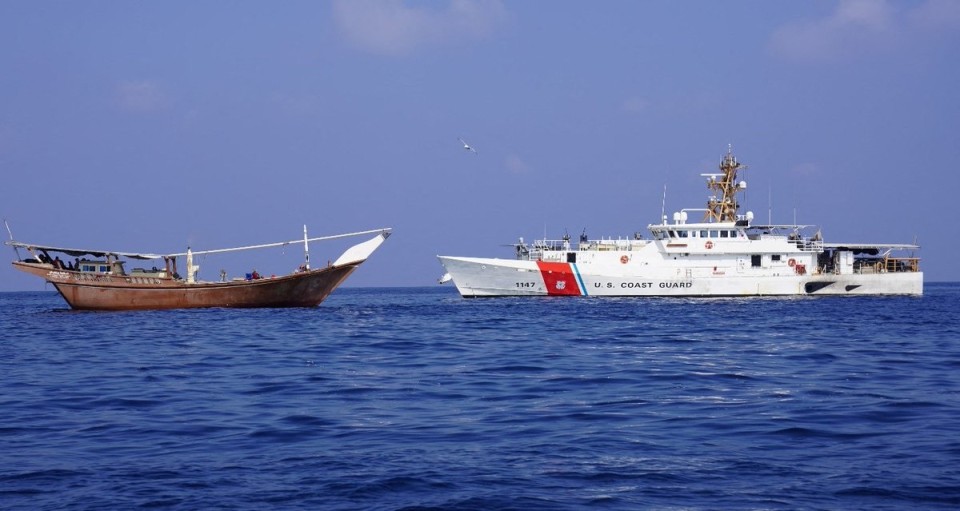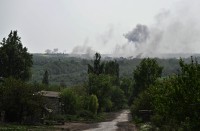
DUBAI, Feb 15, 2024 (AFP) – The US military said on Thursday it seized an Iranian weapons shipment in January that had been destined for Yemen’s Huthi rebels who have been attacking vessels in the Red Sea.
The seizure is part of a wider effort by the United States to counter Huthi attacks which have triggered reprisals by US and British forces, including a fresh wave of American strikes on Wednesday.
The US Navy “seized advanced conventional weapons and other lethal aid originating in Iran and bound to Huthi-controlled areas of Yemen from a vessel in the Arabian Sea on Jan. 28,” the US Central Command (CENTCOM) said on social media.
The shipment contained more than 200 packages loaded with missile components, explosives and other devices, the statement said.
“This is yet another example of Iran’s malign activity in the region,” CENTCOM chief Michael Erik Kurilla was quoted as saying.
“Their continued supply of advanced conventional weapons to the Huthis… continues to undermine the safety of international shipping and the free flow of commerce,” he added.
The Huthis, who control much of war-torn Yemen, have been attacking vital Red Sea shipping lanes since November in a campaign they say is in solidarity with Palestinians in Gaza amid the Israel-Hamas war.
Even before the Red Sea strikes, the United States had raided Yemen-bound weapons shipments it says originate from Iran.
On January 16, it announced the first seizure of Iran-supplied weapons to the Huthis since their attacks started.
CENTCOM said US naval forces boarded a boat heading for Yemen and seized Iranian-made missile components and other weaponry in an operation in which two commandos went missing.

– Retaliatory strikes –
The weapon seizures come on top of a wave of US strikes on Huthi-held parts of Yemen that are intended to deter more ship attacks.
On Thursday, the US military said it struck more drones and missiles in Huthi-controlled areas of Yemen that had been ready to be launched against ships in the Red Sea.
The raids occurred on Wednesday between 1:00-7:30 pm (1000-1630 GMT), CENTCOM said.
American “forces successfully conducted four self-defence strikes against seven mobile anti-ship cruise missiles, three mobile unmanned aerial vehicles, and one explosive unmanned surface vessel,” it said.
The Huthi-run Saba news agency reported several strikes on Hodeida province.
In an earlier statement on Wednesday, CENTCOM said an anti-ship ballistic missile was launched from Huthi-controlled areas into the Gulf of Aden, adding that there were no reports of casualties or damage from ships in the area.
Abdul Malik al-Huthi, the leader of the Yemeni rebels, in a speech on Thursday accused the United States of launching around 40 strikes this week, most of them on Hodeida.
He said such retaliatory attacks would fail to deter his forces from striking vessels if a ceasefire in Gaza is not reached.
He also warned the European Union against being drawn into the confrontation after member states last month gave initial backing to a naval mission to protect ships from attacks.
“European countries should not listen to the Americans or the British, and should not involve themselves in matters that do not concern them or affect them,” the Huthi leader said.
The Huthi attacks have prompted some shipping companies to detour around southern Africa to avoid the Red Sea, which normally carries about 12 percent of global maritime trade.
The UN Conference on Trade and Development warned late last month that the volume of commercial traffic passing through the Suez Canal had fallen more than 40 percent in the previous two months.






